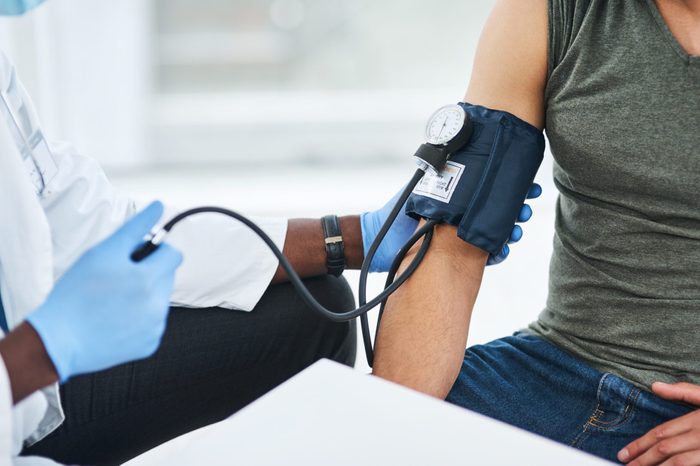
When many of us think of a heart attack, we might envision the dramatic, chest-clenching pain that makes it clear something is wrong. It’s important to note that the American Heart Association reports around 805,000 Americans suffer from heart attacks each year, with about 170,000 cases—greater than 20%—occurring as “mini heart attacks,” or “silent” heart attacks. Mini heart attack symptoms may be far subtler than the red-flag heart attacks that create awareness attention is needed immediately.
Medically, mini heart attacks are referred to as silent myocardial infarction or silent ischemia. Laxmi Mehta, MD, FACC, FAHA, a cardiologist and director of Preventive Cardiology and Women’s Cardiovascular Health at The Ohio State University Wexner Medical Center and Go Red for Women volunteer, says, “A mini or silent heart attack may present with minimal, unrecognized, or no symptoms at all.” Despite their less noticeable nature, these silent episodes are no less severe than their more symptomatic counterparts. When they do appear, symptoms can range widely and even include more traditional signs of heart distress, like chest discomfort, shortness of breath, nausea, lightheadedness, and jaw pain.
Recognizing even the most subtle signs of a mini heart attack is essential, as early detection and treatment are key to mitigating the severe health implications that can follow a heart attack. Keep reading to learn about the symptoms of a mini heart attack you might miss, as shared by heart doctors.
Mini heart attack symptoms

1. Indigestion
Dr. Mehta suggests experiencing what seems like a routine bout of indigestion can be misleading and is often brushed off.
Mike Sevilla, MD, a family physician from Salem, OH, and member of the Ohio Academy of Family Physicians, says his clinical encounters echo this caution and notes that his patients have sought over-the-counter remedies like Tums, expecting relief.
Yet, when these familiar solutions fail to alleviate the discomfort, it’s a sign that the problem might not lie within the stomach but could indeed be a matter of the heart.
New Data: 70% of Heart Attack and Stroke Patients Were Unaware This “Bad” Symptom Affected Them

2. Feeling like you strained a muscle
Pain in your neck, chest, or upper back might feel like you’ve “pulled” a muscle, making it easy to misinterpret as something minor. However, Dr. Mehta and Dr. Sevilla warn against quickly dismissing such discomfort. These symptoms can be hints of a mini heart attack rather than mere signs of overexertion.
Here’s How Often You Should Actually Take Your Blood Pressure, According to a Cardiologist

3. Prolonged, excessive fatigue
Feeling overwhelmingly tired for an extended period of time can be more than just a sign of a busy week or a poor night’s sleep. Dr. Mehta points out that this profound, unrelenting fatigue is a symptom many might not immediately connect with heart health. Yet, this type of weariness warrants attention beyond the usual remedies of rest or caffeine. When exhaustion seems disproportionate to your daily activities, it could be a subtle hint from your body that something more serious, like a mini heart attack, may be at play.
The 3 Foods This Cardiologist NEVER Eats—and 5 Foods He Eats Every Day

4. Difficulty breathing may be a mini heart attack symptom
It’s common to experience shortness of breath after physical exertion or during moments of stress. However, Dr. Sevilla offers an essential piece of advice: If this difficulty in breathing doesn’t improve with a moment of rest, it shouldn’t be overlooked. Persistent breathlessness, especially when you’ve had a chance to relax, could be a warning sign of a mini heart attack.

5. Flu-like symptoms
During this time of the year, it’s almost expected to experience the all-too-familiar signs of the flu, including cough, congestion, and fatigue. Dr. Sevilla cautions against taking these symptoms at face value, especially for individuals identified as having a higher risk for heart issues. He advises that when these flu-like symptoms show no signs of improvement, it’s important to consider the possibility that they could be pointing to something beyond a seasonal virus.
This Zero-Calorie Sweetener Was Just Linked to Heart Attack and Stroke

Here’s what you can do about mini heart attack symptoms:
If you’re concerned that you might have experienced a mini heart attack, Dr. Mehta stresses the importance of medical intervention: “Silent heart attacks [or mini heart attacks] may increase your risk of heart failure and stroke, so it’s important to seek medical care if you believe you may have had a silent heart attack.” She also advises not to overlook any symptoms—even the more subtle signs.
To get to the heart of the matter, your healthcare provider will order a series of tests, including blood work, an electrocardiogram (EKG), or advanced imaging like an echocardiogram or cardiac MRI, to determine if a heart attack has indeed taken place.
The key takeaway here, shared by Dr. Sevilla, is the importance of a collaborative approach in preventing not only mini heart attacks but all heart-related incidents. This involves being proactive about your heart’s health by regularly attending check-ups with your doctor and understanding and managing risk factors such as:
- High blood pressure
- Cholesterol levels
- Diabetes
- Being overweight
- A sedentary lifestyle
- Smoking
Additionally, it’s important to recognize that some risk factors, such as age and family history of heart disease, are beyond your control but should inform your preventive measures.
For more heart-healthy updates, subscribe to The Healthy @Reader’s Digest newsletter and follow The Healthy on Facebook and Instagram. Keep reading:
